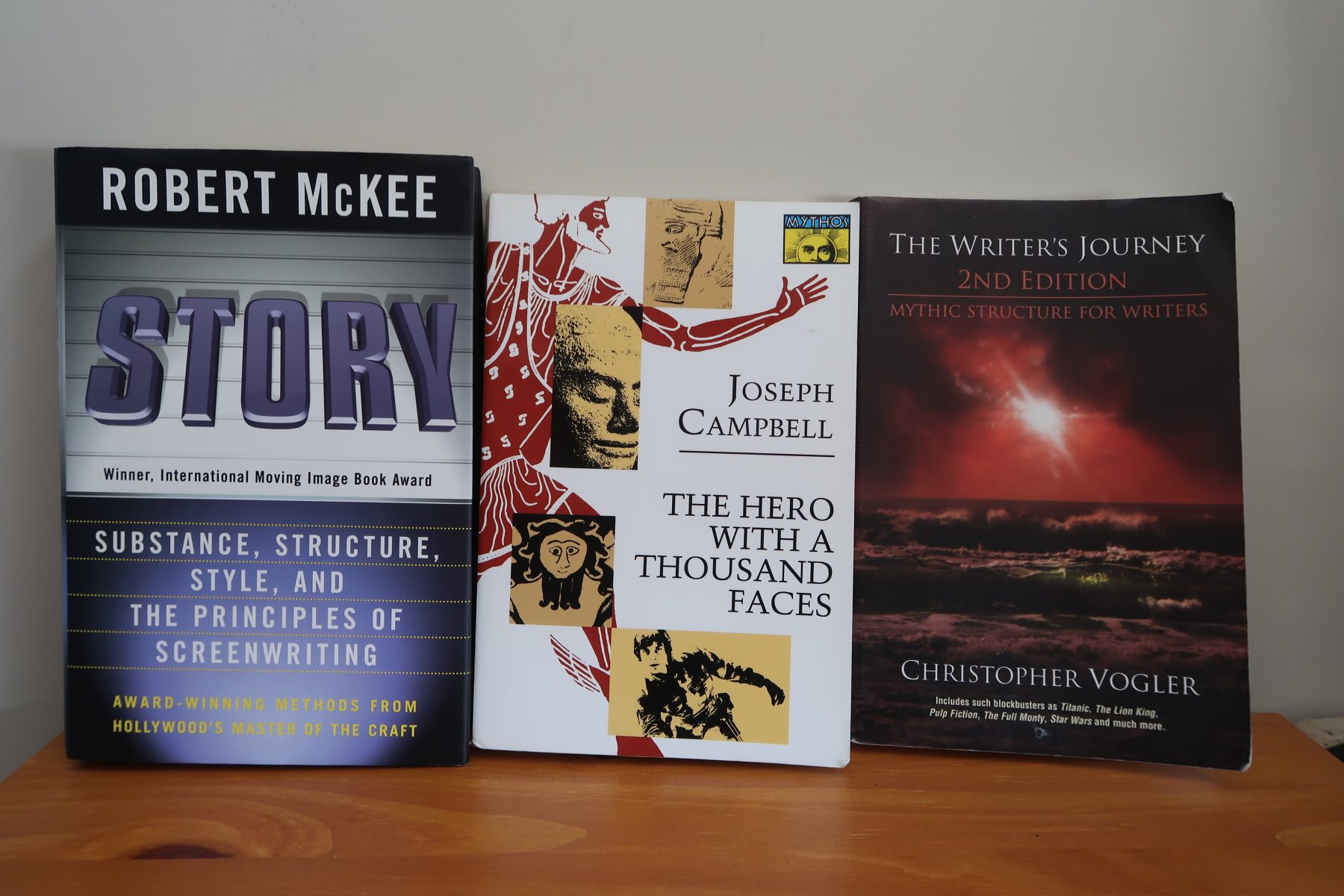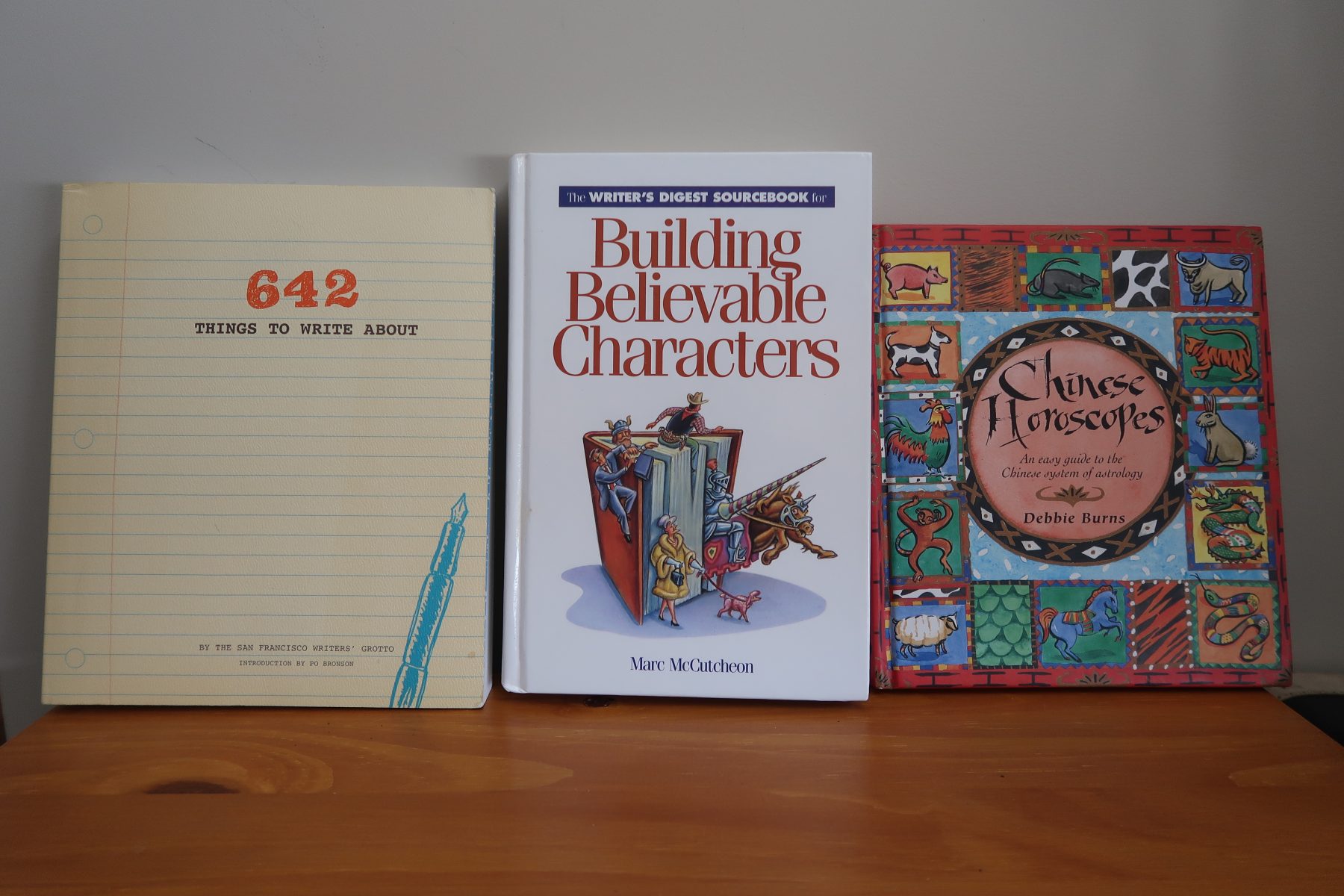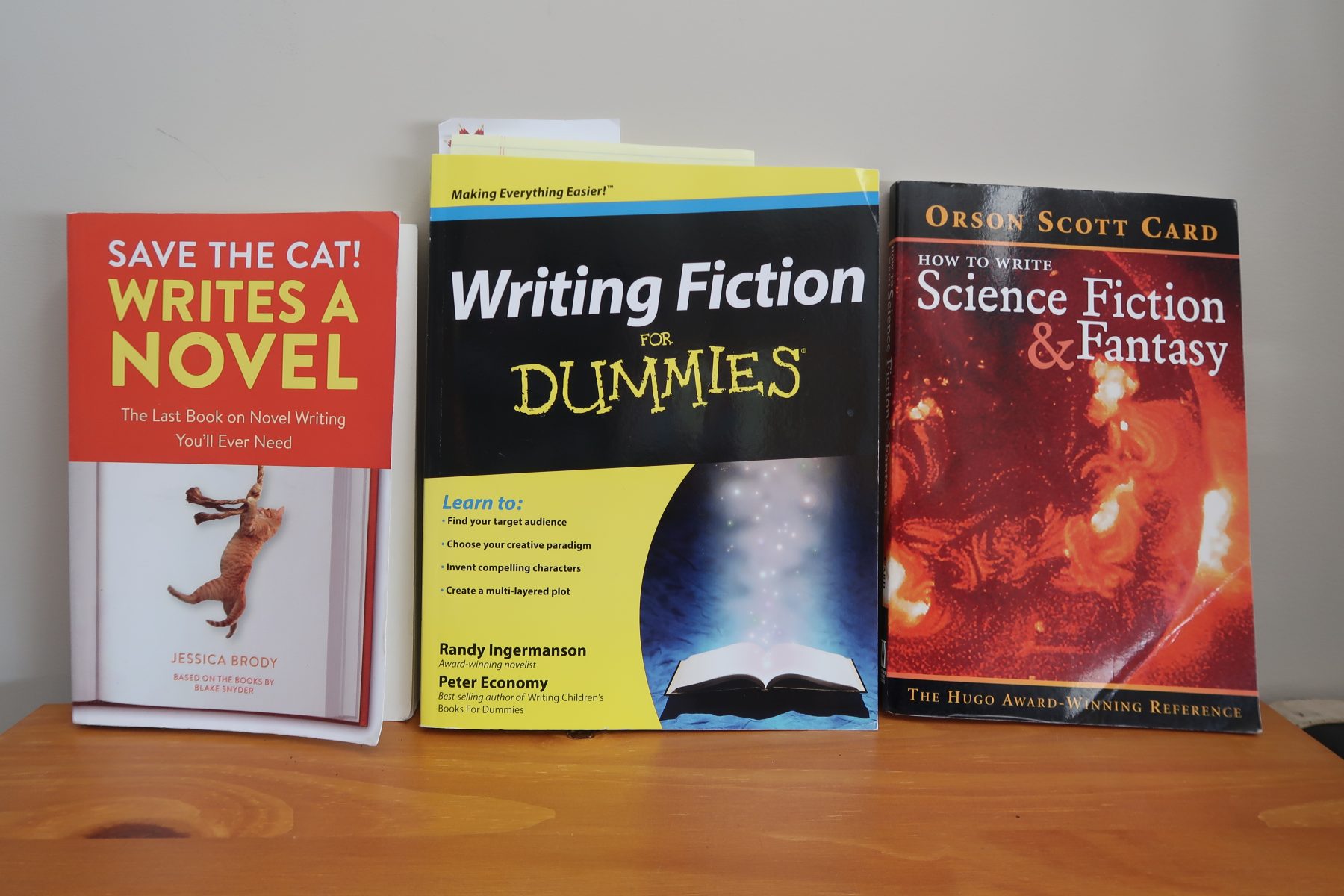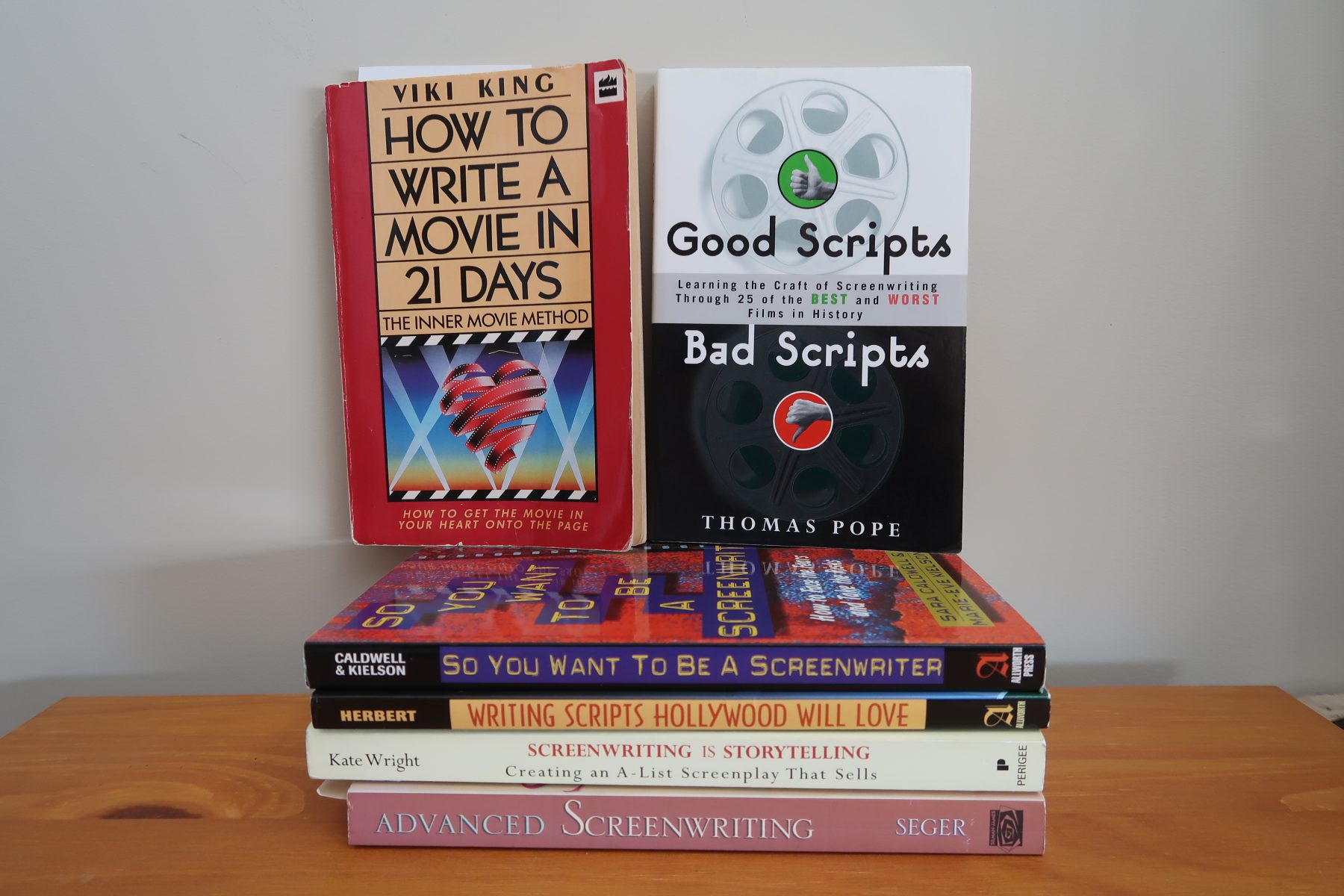After discussing this topic with a student, I thought it might be valuable to share which books on creative writing have helped me the most.
October 2020 Update: I am currently reading The Anatomy of Story: 22 Steps to Becoming a Master Storyteller by John Truby and find it insightful and very comprehensive. For something less analytical but just as valuable, I also enjoyed Stephen King’s autobiographical, fun, and practical book: On Writing: A Memoir of the Craft.

Story & Structure 
Ideas & Character Inspiration 
Writing Novels/Fiction 
Screenwriting
Story & Structure
- Story: Style, Structure, Substance, and the Principles of Screenwriting by Robert McKee
Robert and this book are infamous among screenwriters. This book is bold, clear, and goes beyond screenwriting, but I must admit I find it more enjoyable to skim and bounce around than to read it cover to cover. Watch the 2002 film, Adaptation, to see him (as portrayed by the great actor Brian Cox) giving a writing seminar. - The Hero with a Thousand Faces by Joseph Campbell
Joseph inspired George Lucas and many writers, and I’d estimate there are at least 50 writing books that basically just simplify and repeat what he said. It is dense, being a study of world mythology. I forgot to photograph Mythology for Dummies, which is a better intro to the topic. - The Writer’s Journey by Christopher Vogler
This is one of those books that borrows from and simplifies the words of Joseph Campbell, but it does so very effectively. For new writers, this would be my top recommendation to learn about story and structure.
Ideas & Character Inspiration
- 642 Things to Write About by the San Francisco Writers’ Grotto
It’s basically a notebook filled with 642 writing prompts. I’ve written in my copy and will probably revisit it someday. I think it’s a good book to help build a writing habit and work that creativity muscle. - The Writer’s Digest Sourcebook for Building Believable Characters by Marc McCutcheon
This book is my secret sauce and I’m almost unwilling to share it. It’s a surprisingly helpful book with a lot of lists, including things like potential character names, occupations, adjectives to describe their appearance, vices, etc. It’s a great resource if you like to explore possibilities, shortlist items, and pick the most fitting words for your story. - Chinese Horoscopes: An Easy Guide to the Chinese System of Astrology by Debbie Burns
I don’t think Debbie Burns is a Chinese name, nor do I really follow Western or Eastern astrology. So why is this here? I’ve discovered it’s actually a great resource for character personalities and relationships, at least as a starting point.
Writing Novels/Fiction
- Writing Fiction For Dummies by Peter Economy and Randy Ingermanson
Pretty comprehensive and easy to read. It’s very well organized so you can skip to whatever you’re looking for if desired. - How to Write Science Fiction & Fantasy by Orson Scott Card
Regardless of how you feel about his fiction writing, Mr. Card wrote Ender’s Game and among many other books, and is also an experienced writing teacher. He provides valuable advice for writers looking to write in these two genres, in terms of world-building, rules for magic, futuristic technology, etc., all of which he takes quite seriously. - Save the Cat! Writes a Novel: The Last Book On Novel Writing You’ll Ever Need by Jessica Brody
The Save-the-Cat methodology was first introduced in a book on screenwriting by Blake Snyder. It also borrows from common themes found in universally loved stories, reminding me of Joseph Campbell’s work. While it provides a helpful roadmap, I would recommend not limiting yourself to matching its guidelines exactly, or ONLY reading this book. Many writers have created story structures (Dan Harmon’s story circle, for example), that have similar benefits in creating a story that flows in a familiar way.
Screenwriting
- How to Write a Movie in 21 Days: The Inner Movie Method by Vicki King
This old gem is the first book on creative writing that was ever given to me. I have my great Aunt Jacque to thank for that. It holds a special place in my heart and I’m happy to see a revised edition is expected for August 2020. It’s a comprehensive book that speaks to you like a mentor and a friend. It was my companion when I wrote 3 feature screenplays. I referred to it again recently when working on my novel and found it still contained wisdom I had forgotten. If it’s not clear already, this is my favourite book on writing. - Good Scripts, Bad Scripts: Learning the Craft of Screenwriting Through 25 of the Best and Worst Films in History by Tom Pope
You’ll notice while I own many screenwriting book (see photograph above), I’m only recommending two. Honestly I feel many screenwriting books are the same, and most contain primarily contain opinions that could help or hinder your writing. This one is a fun one, that definitely contains opinions, but is looking at popular opinion and trying to understand it through close examination. It encourages you as the the reader to examine and break down the stories you love (and hate) to think about what didn’t work for you, and how you would try to make it better. If you already do that, then you don’t need this book. Lastly, I’d like to recommend the Scriptnotes Podcast, as it is delightful and also immensely comprehensive (400+ episodes).
Are there books that I missed that you would recommend? Let me know in the comments below.